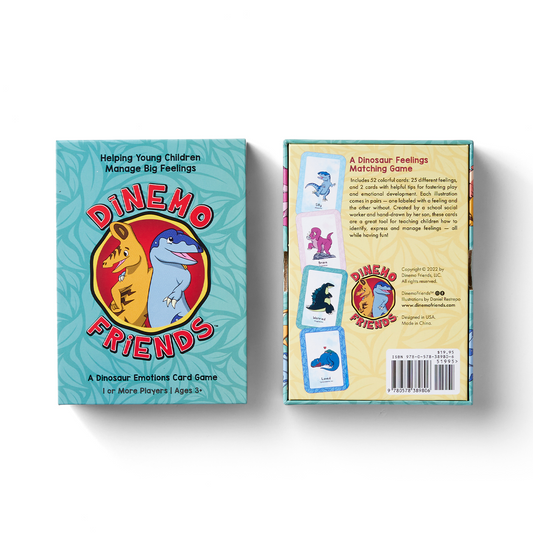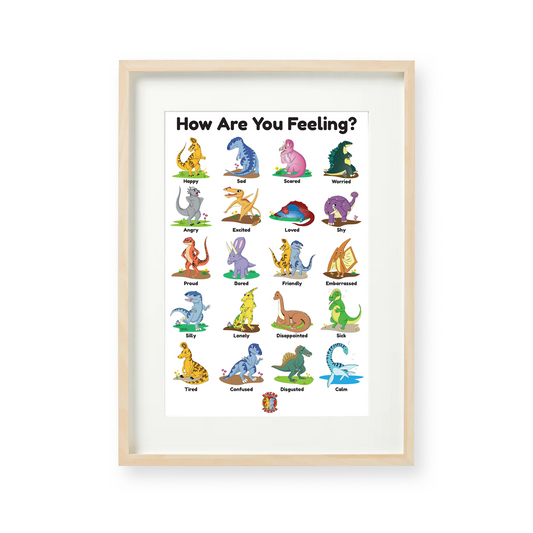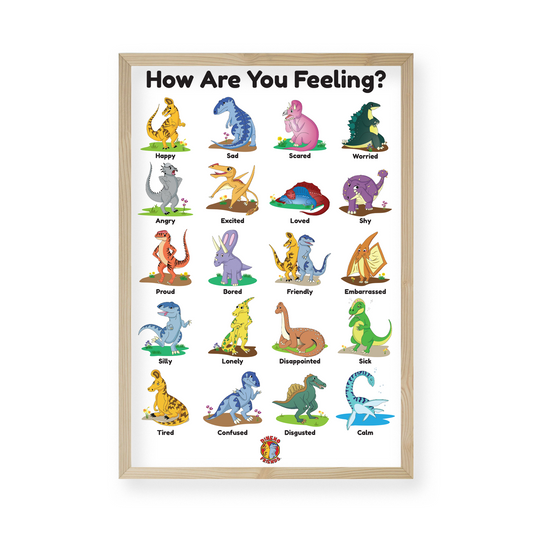Learn How to Manage Feelings Using the Dinemo Friends Feelings Poster
PICK | Invite your child to pick any feeling on the poster. Take turns picking different feelings (When it is your turn, you might want to pick a feeling that the child needs more support with). Ask the child why they chose that dinosaur/feeling. Invite them to talk about a time when they felt that way. Share a time when you felt that way too. Ask them if they have ever seen anyone expressing that feeling.
PLAN | Planning is a big part of helping children manage feelings as well as how to anticipate events so that they can work through their feelings without feeling surprised. When children have time to plan, it can reduce anxiety and give them strategies and tools to keep in their back pocket when needed. When you and your child are feeling calm, talk about a big feeling. Brainstorm strategies that your child can use when they are feeling those feelings.
PRACTICE | As with anything, practicing skills over time make things easier and become second nature. Having tools like calming cards, calming bottles or mindfulness cards for children are more meaningful when children have used them before difficult feelings come up. Role play having a chosen feeling. Practice using the calming methods. Ask your child to share how they feel after using the strategies.
Spending even 15 minutes a day away from screens, in a mindful activity on feelings, can help your child strengthen their social and emotional development, and build resilience.
PLAY | Spending consistent time playing with your child makes stronger connections and offers an opportunity to work through difficult topics through play. The use of board games, or card games helps children work though feelings like disappointment and frustration. Pretend play and the use of puppets and figures can help children act out various ways of handling feelings without feeling vulnerable.
Remember that finding opportunities to connect with your child in supportive and responsive child-led play is what is most important. Spending even 15 minutes a day away from screens, in a mindful activity on feelings, can help your child strengthen their social and emotional development, and build resilience. Your relationship with your child is what matters most. Lastly, one more thing: don’t forget to have fun and enjoy the process! Your child is special and so are you. Together you are amazing.





